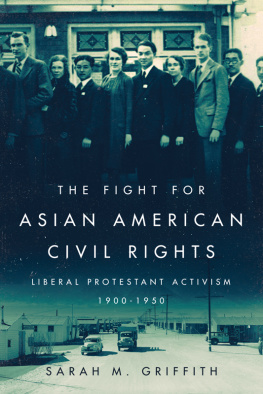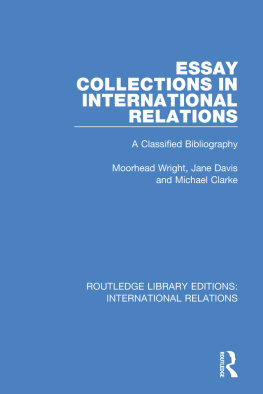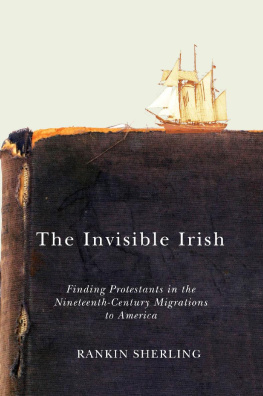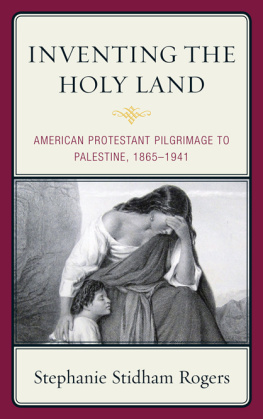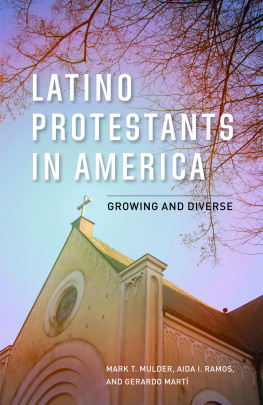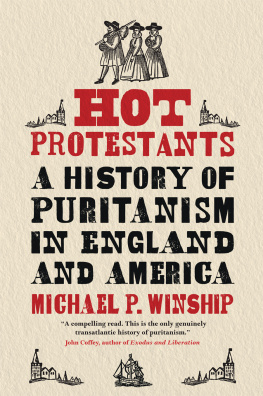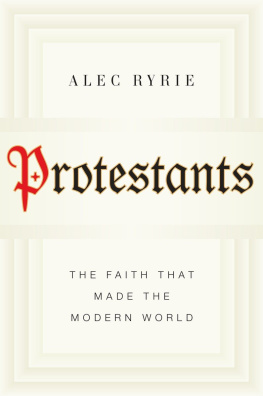This book is a publication of
Indiana University Press
601 North Morton Street
Bloomington, IN 474043797 USA
http://www.indiana.edu/~iupress
Telephone orders 800-842-6796
Fax orders 812-855-7931
Orders by e-mail iuporder@indiana.edu
1999 by James H. Moorhead
All rights reserved
No part of this book may be reproduced or utilized in any form or by any means, electronic or mechanical, including photocopying and recording, or by any information storage and retrieval system, without permission in writing from the publisher. The Association of American University Presses Resolution on Permissions constitutes the only exception to this prohibition.
The paper used in this publication meets the minimum requirements of American National Standard for Information SciencesPermanence of Paper for Printed Library Materials, ANSI Z39.48-1984.
MANUFACTURED IN THE UNITED STATES OF AMERICA
Library of Congress Cataloging-in-Publication Data
Moorhead, James H.
World without end: mainstream American Protestant visions of the last things, 1880
1925 / James H. Moorhead.
p. cm. (Religion in North America)
Includes bibliographical references and index.
ISBN 0253335809 (alk. paper)
1. EschatologyHistory of doctrines19th century. 2. Protestant churchesDoctrinesHistory19th century. 3. Protestant churchesUnited StatesHistory19th century. 4. EschatologyHistory of doctrines20th century. 5. ProtestantchurchesDoctrinesHistory20th century. 6. Protestant churchesUnited StatesHistory20th century. I. Title. II. Series.
BT819.5.M66 1999
236.90973dc21 9924448
1 2 3 4 5 04 03 02 01 00 99
IN THIS VOLUME, James H. Moorhead, who is arguably the most perceptive interpreter of American postmillennialism today, carries his historical analysis of the development of that influential eschatological tradition to the time of its serious erosion in the opening decades of the twentieth century. In earlier publications, he examined the religious and social uses to which Northern Anglo-Protestants in mainstream churches applied postmillennial notions. Powerful reform movements, in times of both war and peace, drew religious energy from the eschatological vision of a this-worldly Kingdom of God and from the related concept of unending progress that was the product of human enterprise. Inauguration of a future millennial age, whether literal or figurative, rested on the shoulders of those working to improve society, whether by religious, social, or political means.
But the decades surrounding the turn of the twentieth century, the time period that Moorhead examines closely in this volume, witnessed the demise of religious postmillennialism among mainstream northern Protestants. His narrative therefore describes the end of the idea of the End of History among middle-of-the road liberal religious communities, those denominations where this progressive outlook had previously dominated. This is the story of the loss of faith in predictive prophecy and of a corrosive ambiguity toward eschatology among moderate to liberal Protestants. Some commentators may be tempted to describe this change as simply the inevitable result of the process of secularization, but Moorheads analysis is far more subtle and probing than any such reductionist proposal.
Moorhead contextualizes his account by reminding us that millennialism, or religious apocalypticism of whatever stripe, needs to be understood as an effort to use biblical prophecy as a way to make sense of human experience. Postmillennial thinkers traditionally spoke of sacred and profane forces advancing together in harmony into the future, a judgment that was premised on a residual faith in the value of predictive prophecy. It was the loss of that faith that seriously eroded the postmillennial outlook. Even the rearguard efforts of some to retain belief in a possible Second Advent of Christ, while at the same time resorting to metaphorical interpretations of other traditional eschatological elements, failed to change what to Moorhead appears the inevitable destruction of postmillennial apocalypticism among mainstream Protestants.
Moorheads account of these intellectual changes demonstrates clearly how they were bound up with acts and deeds. His authorial stance is intrinsically a subtle critique of the kind of social-science reductionism that would relegate ideas to intellectual attics that have little to do with the life that unfolds on lower floors. Moorhead shows how postmillennial developments within Protestantism undermined the developers in the end. Protestant assertions of thisworldliness and unending progress, along with a waning sense of apocalyptic terror, took away a sense of transcendence as well as of meaningful confrontation with primal human fears. The specter of hell as an eternal night faded. By contrast, the notion of heaven became continuous with the present life, specifically, with the depiction of it as an ideal home. These changes inevitably resulted in a different view of the primary Christian eschatological textthe biblical book of Revelation.
Moorheads account adeptly chronicles the ways in which crusading, kingdom-building Protestantism was influenced by what he calls a secular Great Awakening, the insight and knowledge available through the new social sciences. Scientific planning, rational organization, business management, professional standards, a preoccupation with efficiencythese replaced theological principles or religious traditions in this new eschatological world. Such new measures energized the relentless drive by liberal Protestants in these decades to reshape the nation and the world. The attempt to bring to fruition their liberal vision of the kingdom of God had increasingly little in common with earlier eschatological ideas.
By the end of the second decade of the twentieth century, the divide between the progressive heirs of the postmillennial tradition and the conservatives (a.k.a. the fundamentalists) who were watching and waiting for an imminent catastrophic end to history was immense. Moorhead depicts that gap as the contrast between naturalism and supernaturalism. Liberals saw no end in sight; for them the Second Coming was a continuous process throughout history. Conservatives anticipated a very different end time scenario; in their scheme, Christs physical return was to be instrumental in the denouement of history. Moorheads volume is a masterfully written argument for the self-inflicted nature of the mainstream-Protestant wound in the Gilded Age and the Progressive Era. His work also adds up to a trenchant critique of the mainstream Protestant church as a church of order but of only lukewarm supernaturalism.
Catherine L. Albanese
Stephen J. Stein, Series Editors
IN 1907 the British literary critic and essayist Edmund Gosse recalled the moment when he began to lose the faith of his childhood. Alone at school on a summer afternoon, the other students having gone on a walk, Gosse looked out from the schoolhouse upon trees and gardens which sloped down to the sea. There was, he wrote, an absolute silence below and around me; a magic of suspense seemed to keep every topmost twig from waving. For one reared in a Plymouth Brethren home where he had been taught to await the imminent return of Jesus, the summer stillness was a sign of the End.


